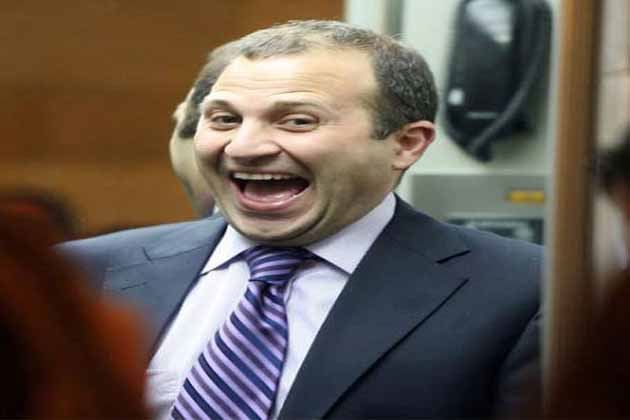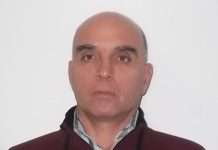Lebanon’s new leaders seek to secure power
Michael Young/The National/September 15/16
In recent weeks, Lebanon has faced two crises, and both told us something about political succession. A new generation of leaders is emerging, and their preferred way of consolidating their hold on power is to heighten polarisation.
The first crisis came after the decision of the Free Patriotic Movement’s leader, Gebran Bassil, to boycott Lebanon’s national dialogue sessions, on the ground that he had not received adequate answers on equal power-sharing between Christians and Muslims.
The second crisis involved rubbish, and was provoked by Sami Gemayel, who heads the Kataeb Party. Mr Gemayel and his followers prevented the preparation of a landfill near Bourj Hammoud, in Beirut’s eastern suburb, arguing that dumping waste there would pollute the sea and was hazardous.
To an extent both protests were justified, and yet this was probably not the primary reason why they took place. The role of Christians in the state has indeed been reduced, a consequence of the demographic decline of the community. Lebanon’s politics today are largely defined by dynamics shaped by the Sunni and Shia communities.
As for Mr Gemayel, his beef against the Bourj Hammoud landfill was also fair, and the fact that environmental activists supported him tended to confirm this. The landfill is an abomination so near an urban area, and is testimony to the government’s unwillingness to resolve the refuse crisis of last summer through environmentally sound methods.
However, what was also obvious was that Mr Bassil, like Mr Gemayel, is in the process of consolidating his hold on a political party that was handed to him. Mr Bassil took control over the FPM thanks to the intervention of his father-in-law, Michel Aoun, who forced a rival competitor for the leadership post in elections last year to withdraw in his favour.
Since then Mr Bassil has been trying to strengthen himself in a party in which he is not especially popular. Last July, three prominent FPM officials were expelled for challenging the leadership’s decision to forge an alliance with Saad Hariri in municipal elections in Beirut.
However, in late July, in internal elections to select candidates for parliamentary elections, a significant number of members voted for Mr Bassil’s rivals in the party, including those who had been expelled.
Mr Bassil is well aware that one of the things facilitating his grip on the FPM today is the presence of Mr Aoun, who, without a son of his own, has shown an uncanny devotion to his son-in-law. But when Mr Aoun, who is 82, passes away, the trials facing Mr Bassil are certain to increase. That is why he would like to cement his authority now, before that happens.
His boycott of the national dialogue fits in perfectly with this strategy. By focusing on the hot-button issue of Christian under-representation, he sought to portray himself as a champion of communal interests.
This would allow him to reinforce his standing within the FPM and better face down any challenge from his right. Mr Bassil is not subtle, but his tactics may work, so great is the Christian sense of alienation.
Mr Gemayel was also given his Kataeb Party, this time from his father Amin Gemayel. The challenges to his authority are not as pronounced as those faced by Mr Bassil. However, there are party stalwarts who are not necessarily sympathetic to their young leader’s populism, or to his tendency to speechify.
But Sami Gemayel’s main problem is electoral. He is from a district in which his electoral ambitions are in the hands of both Mr Aoun and the Armenian Tashnag Party, who control large blocs of voters who can shut out Mr Gemayel if they so decide.
By picking a fight over an environmentally explosive issue for the large Armenian population of Bourj Hammoud, Mr Gemayel probably hoped to gain leverage in forth coming elections.
Mr Gemayel’s demands in the rubbish crisis were aimed at raising sympathy in several quarters. He has sought to break the monopoly of the main refuse-collection company Sukleen, which collects trash in Beirut and Mount Lebanon, by decentralising collection and placing it in the hands of municipalities. Sukleen is largely perceived as a Sunni-controlled company, so Mr Gemayel was also playing on Christian sectarian sensitivities.
Still, Mr Gemayel announced the suspension of his protests last week, with little having been achieved. This highlighted his inexperience, even if he was always more interested in the battle than in the results. Perhaps that said a great deal about the depth of the aspirations of Lebanon’s younger leadership.
Other leaders are also slowly handing power over to their sons, such as Walid Jumblatt and his son Taymour – who seems more sedate. The only problem is that it’s the Lebanese who have to pay for the manoeuvres by young leaders to overcome their political insecurities. But these leaders don’t much care.
**Michael Young is a writer and editor in Beirut





















